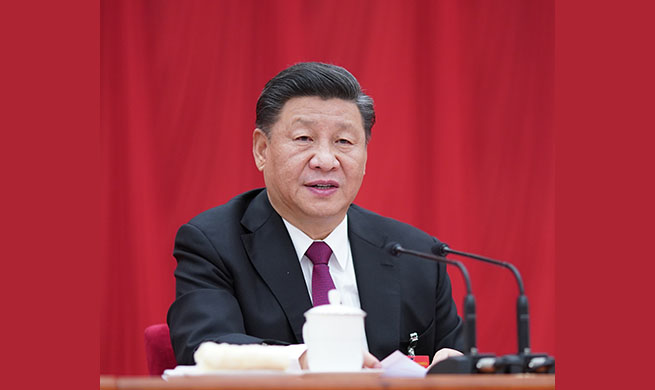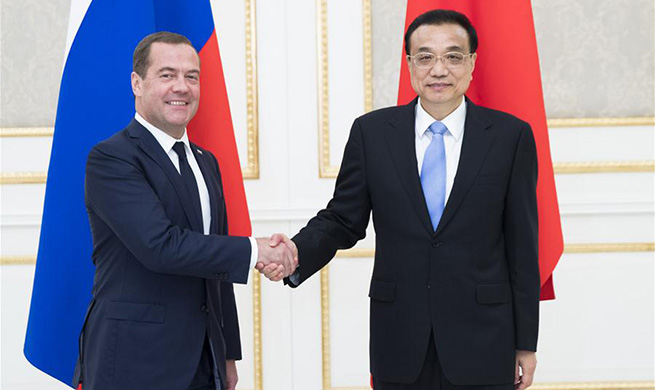BEIJING, Nov. 2 (Xinhua) -- Acclaimed Chinese and foreign academics have gathered in Beijing for a two-day forum discussing China's development path and its implications for the world.
The forum, which concluded Saturday, was jointly organized by the Academy of Chinese Culture and the Kuhn Foundation. More than 20 scholars shared their views, including Robert Lawrence Kuhn, chairman of the Kuhn Foundation, Kerry Brown, professor at King's College London and Stephen S. Roach, a senior fellow at Yale University.
Pan Yue, first deputy president of the Academy of Chinese Culture, said Chinese civilization and the Chinese path feature openness and explore a new way for peace and win-win cooperation for countries around the world.
The Chinese path, Pan said, will not lead to hegemonic conflicts.
Instead, it offers the world a model of reference for modernization to be achieved at a faster pace through the concentration of resources toward a common goal, Pan added.
Kuhn, on the other hand, highlighted China's strong political leadership, economic and market vitality, and right policy choices for the country's achievements over the past seven decades.
Kuhn said China's poverty alleviation served as a good example for the world's other developing countries to draw experience from.
With targeted poverty alleviation, China lifted 82.39 million rural residents out of poverty between 2013 and 2018, about the entire population of Germany.
Over the past 40 years, more than 700 million Chinese people have left poverty behind, representing over 70 percent of global poverty reduction.
"When historians of the future write the chronicles of our times, a feature story may well be China's targeted poverty alleviation," he said, adding that this great accomplishment should not be underappreciated.
Poverty reduction is just one aspect of the achievements China made on the path of socialism with Chinese characteristics.
On its unique path, China has managed to grow into the world's second-largest economy in just a few decades.
Qian Chengdan, a professor at Peking University, said the key to successful modernization lies in finding a suitable development path.
Li Junru, former vice president of the Party School of the Communist Party of China Central Committee, said the socialist path that China follows is closely linked to its traditional value -- a just cause should be pursued for the common good.
"This path can trace its roots to the genes of the Chinese nation," Li said.
"What we see today is a Chinese economic and sociopolitical model which is highly indigenous," said Brown, the King's College London professor.
Brown said China is a country that does not subscribe to the same set of values as those of other large economies in the world, resulting in many people who know little about it beset by confusion about how to respond to this extraordinary and novel transformation.
He said there are opportunities for a "liberation of thinking" where the West and the East can engage in fruitful dialogue and where they are able to balance each other.

















